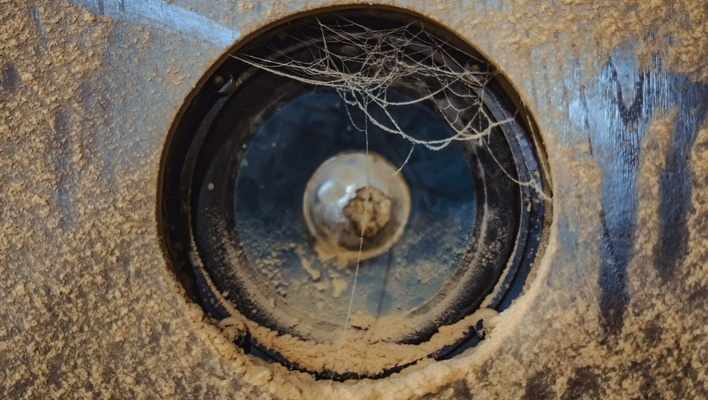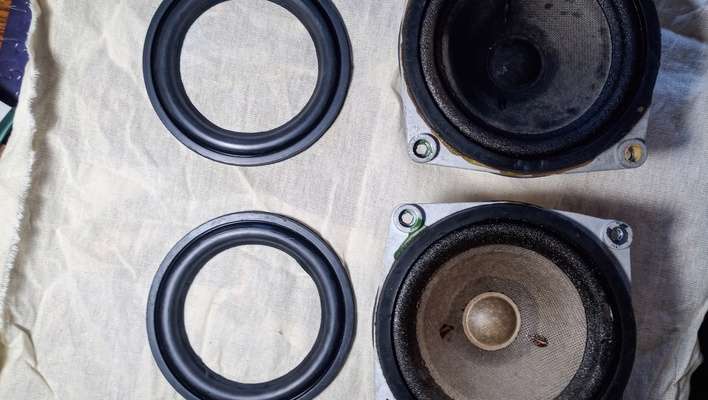Are you wondering how long do speakers last? One of the greatest things about good quality speakers is that they can last a lifetime. On average, you should get at least five years out of your speakers. When properly maintained, good speakers can last for at least ten to fifty years. Again, this will depend on their quality and how well you maintain them.
Though your speakers will wear out after some time, it is crucial to buy quality speakers and know how to care for them. A general rule of thumb is, if your speakers sound bad or you hear some distortion, you should consider checking them out and fixing the issue.
Several factors determine when you should replace your speakers. If you are wondering how often you should replace car speakers, read on to know more about how long your speakers can last and how you should maintain them.
How to Increase the Lifetime of Your Speakers
Speakers are an essential part of your music system. However, your speakers’ quality, status, and age will make or break the quality of the sound you get from your system. To get the best sound, you should opt for high-quality speakers. However, regardless of the speakers, you have, knowing the best ways to maintain your speakers will also determine how long they will last and the quality of sound you will get.
Here are some speaker maintenance tips that you should consider.
1. Fight the Dust
Dust is your speaker’s greatest enemy. Dust will not only make your speakers look bad, but it will find its way into the speaker’s wire connectors and other sensitive parts of the speaker and cause a lot of damage.

When your speakers are filled with dust, the electric signals that run between the loudspeakers and the source are disrupted. This adds some unwanted noise to your sound system, and the excess dust will also damage the loudspeakers and the wiring.
To keep your speakers dust-free, you should place them in a less-dusty area and also clean them regularly. You can use a vacuum cleaner, an air canister, dry cloths, or dust pads to get rid of any dust. Be careful not to use any liquid cleaners when cleaning your speakers.
Liquids can damage the amplifiers, and when they come into contact with the metallic parts of the speakers, they can damage the inbuilt electromagnet. When cleaning, you should also be as gentle as possible to avoid damaging the cones.
2. Protect Your Speakers Against Heat
You should ensure that you place your speakers away from direct sunlight. This is especially important if your speakers do not have a less-than-perfect thermal design because sun rays will cause the speakers to overheat.
Direct sunlight will damage the electromagnetic voice coils, which are vital in maintaining the electrical current between the loudspeaker and its source.
3. Have Proper Ventilation
Having enough airflow around your speakers is crucial to their lifespan. Proper ventilation will help your speakers cool down after prolonged use. While it might be impossible to have fans constantly blow at your car speakers while they are playing, you can arrange the system to allow proper airflow.
Proper ventilation will also improve the sound quality because there is less sound distortion due to overheating and vibration.
4. Watch Out for Static Electricity
Static electricity is yet another big enemy for your speakers. Therefore, you must always protect the speakers from static electricity because the buildup of static electricity will burn out your speakers.
To protect your speakers and ensure that they last longer, you can consider investing in anti-static floor mats. Dry air is a perfect insulator and will allow static to build up to an almost dangerous level which you can fight against using a humidifier. However, do not place the humidifier close to the speakers.
5. Protect the Speakers from Power Surges
If you have a high-end audio system and speakers, you should ensure that you control how much power goes into them. Passive speakers do not connect directly to the power or music source. However, a sudden power surge can damage every component in the system. Remember, when well-maintained, high-end speakers can last up to 50 years. To get the best life from your speakers, you can consider investing in a Voltage Regulator and Uninterruptible Power Supply (USP) to protect your entire music system.
6. Install and Wire the Speakers Correctly
Knowing how to install and wire your speakers is very important. You should ensure that you use the correct plugging procedure and use the right connection jacks. Using the wrong jack on the wrong channel will blow up your music system.
Should you choose to DIY the installation and wiring process, ensure that you use the right tool and follow the correct procedure. Otherwise, it may be ideal to hire an expert to handle this crucial process.
7. Do a Burn Out Test
If you have installed new speakers, it is vital that you keep them running for at least 24 hours. Doing this will help detect any problems or manufacturing defects, and you will be able to fix it before it gets worse or have them replaced. It would be best if you did a burnout test before using your speakers.
What Are Some of The Reasons Why Speakers Stop Working?
Though maintain your speakers will help ensure that they work well for a long time, several other reasons can cause your speakers to stop working. If you want to know how to increase the lifetime of your speakers, you should also:
Avoid Turning the Speakers Up Too Loud for Too Long
Though cranking up the volume of your stereo is fun, overdoing it will damage your speakers. Turning up the volume too loud for a long time will physically damage the speakers. The amount of damage will depend on how loud the volume is and how well the speakers are maintained.
The question is, how loud is too loud? The answer to this lies in the quality of your system, the capabilities of the speakers, and the ratings. However, a good rule of thumb is to never go beyond reference level.
This is the volume at which films are mixed and calibrated. If you notice some clipping, distortion, or the cones or speaker breaks, you should know that you are playing your music beyond reference level.
Avoid Moisture
Unless you have weather-resistant speakers, moisture will damage your speakers. Please do not leave them in areas with too much moisture because it will corrode the internal parts of the speaker and cause them to malfunction.
Moisture can cause problems like a scratch speaker or tweeter, oxidation, and the speaker housing or any wooden part of the speaker can also rot.
Avoid Extreme Temperatures
Leaving the speaker in a very hot or cold area will also cause them to malfunction. Extreme temperatures will affect the longevity of the speakers. Too much heat can melt the adhesives around the speakers, the voice coils, and the internal wiring. On the other hand, too much cold can cause the internal parts and of the speaker to become brittle and break.
Buy Quality Speakers
The materials that the speakers are made of will also determine how long they will last. When choosing speakers, pay close attention to the surrounding edges or the material surrounding the woofers or drivers on the outside.
What the speaker is made of will affect the quality of sound and durability. For example, some old speakers have foam lining, which can rot after some time and damage the speakers. If the speakers have foam lining, you may want to consider replacing the speakers.
Note that using a speaker with foam lining will cause permanent damage to the voice coil. Several modern speakers use rubber which is more durable than foam lining. Some speakers also use cloth lining, plastic, or wood. It is essential to know the best material for the speakers.
You should also note that different brands have different levels of quality. The variations in manufacturing have a huge role to play in the longevity of the speakers. Though several parts of a speaker, including the cone, is repairable, you should always insist on quality.
Low-quality materials will not last long, and some speakers are not designed to be repairable in the first place. Therefore, it is crucial to know what type of brand and quality to go for.
Now, How Long Do Speakers Last?
From this article, you can see a lot that goes into determining the lifespan of a speaker. Good quality and well-maintained speaker can last for several decades. If you follow the tips on how to maintain your speakers and avoid doing anything that can affect their functionality, your speakers should last you a lifetime.
Technology has also hugely impacted the quality of speakers. Today manufacturers use materials such as Kevlar and carbon fiber to increase the durability of the speakers. If you go for quality, your speakers should last as long as possible.
Final Word
We hope that this article has covered the general ideal of Though several factors will determine the lifespan of your speakers, proper care and maintenance will play a huge role in ensuring that the speakers last as long as they should. Remember, to get the best sound and maximum lifespan, you should also ensure that you buy quality speakers.

